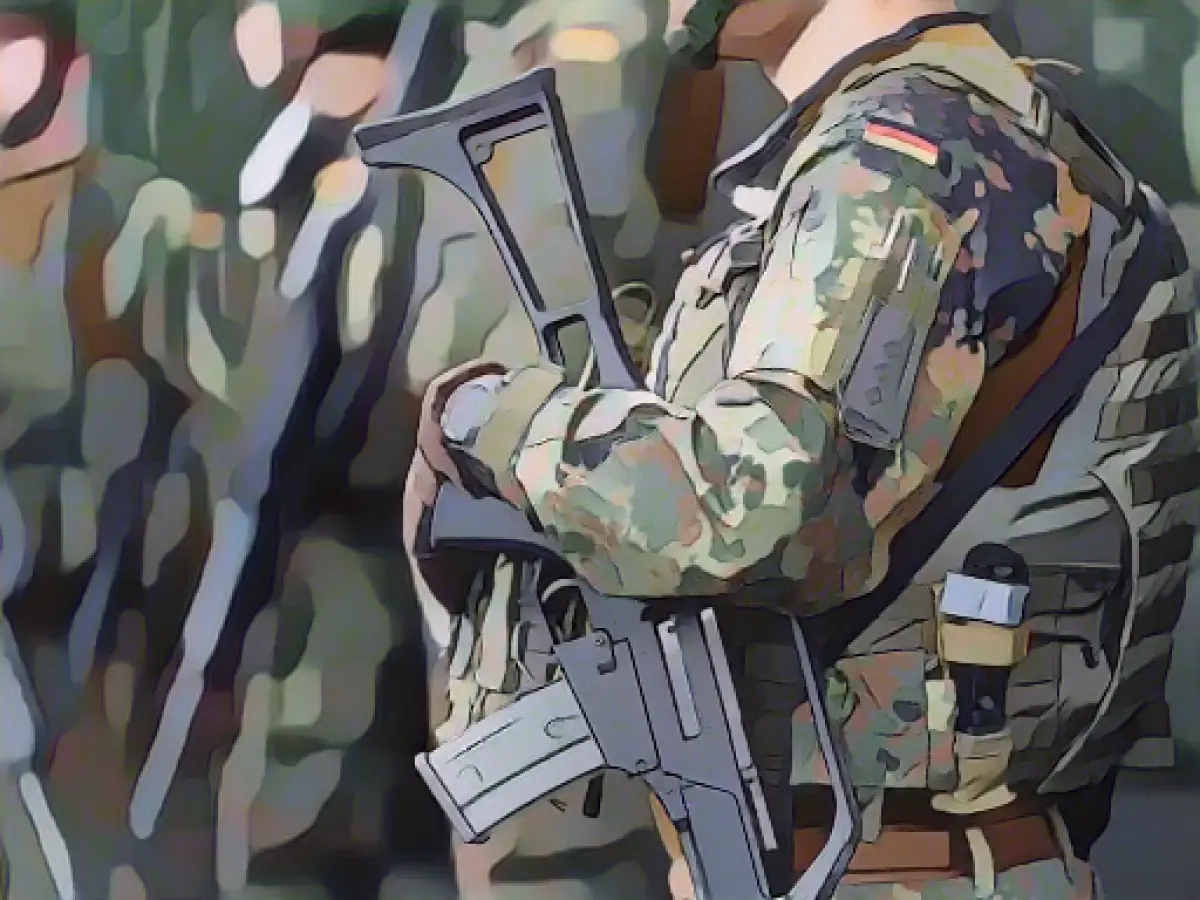Wadephul calls for more speed in equipping the Bundeswehr
Johann Wadephul (CDU), deputy leader of the CDU/CSU parliamentary group, has called for significantly more speed in equipping the German Armed Forces and the replenishment of the military equipment handed over to Ukraine. The correct and sensible transfer of ammunition to Ukraine has "now developed into a difficult shortage in the Bundeswehr", the foreign and defense politician told the German Press Agency in Berlin.
"Crucial troop units can only last a maximum of two days in a battle. And that is a catastrophic finding overall," said Wadephul. "Anyone who even talks about being ready for war, but expects the Bundeswehr to be at least ready to defend itself, should have ensured that such a bad situation does not occur. Unfortunately, the opposite is the case."
Development of the Bundeswehr is proceeding slowly
The development of the Bundeswehr into a defence-capable armed forces is hardly making any progress, criticized Wadephul. "It has got stuck in its infancy and Boris Pistorius is of course now also responsible for the stagnation. I see big announcements, but few actual measures that contribute to the war capability that the Minister of Defense himself invokes," he said, noting: "The turning point is not currently taking place for the Bundeswehr."
There are orders, but the Bundeswehr has received almost nothing so far. "Even when it comes to replacement procurement, the Bundeswehr is actually making a loss. As correct as the donations to Ukraine are in terms of material and ammunition. In the current security situation, it is unacceptable that there is no compensation." Russia's war of aggression against Ukraine had made it clear: "We need many times more than we had."
Wadephul emphasized the support for military aid to Ukraine. "It is fighting our European fight for freedom and that is all right and necessary. What is missing is that we now flip the switch and realize a turning point." He sees a Bundeswehr that continues to operate as it has for the last 20 years and has the structures of an "Afghanistan army", i.e. one that specializes in international missions. "I see a Bundeswehr that is still carrying out its procurement processes just as carefully, cautiously and sometimes - I think - fearfully as it has for the last 20 years," he said.
Doubts about planned NATO division
The Union man also expressed doubts as to whether Germany would be able to provide NATO with the fully combat-ready so-called Division 2025 in two years' time, as promised. He said: "It will once again be a division - as with previous registrations with NATO - that is cobbled together from the entire Bundeswehr. It will not be equipped with the weapons systems that we need for the Bundeswehr in the mid-2020s. And, above all, it will be under-equipped in terms of personnel and ammunition stocks."
He called on the Federal Government to set priorities following the Karlsruhe budget ruling. These must include external security. "Anything else would be forgetting the future in view of the situation in Ukraine and also in the Middle East and not least in North Africa."
Wadephul: "Surprisingly, the Minister did not implement his correct demand for ten billion more for the Bundeswehr in Section 14, even though he has excellent poll ratings and was able to justify the figure precisely. And that was a serious political mistake, which is now taking double revenge because the scope for budget planning in the coming years will of course be even tighter."
Introduction of compulsory service indispensable
The deputy leader of the CDU/CSU parliamentary group also believes that the introduction of compulsory service in the German armed forces, civil protection and rescue services is essential. "We will not be able to ensure effective national defense without the necessary personnel," he said. The debate must now become concrete and also clarify how service can be made attractive. "This must pay off in terms of pensions and the use of public facilities."
Compulsory military service was suspended in July 2011 after 55 years under the then Defense Minister Karl-Theodor zu Guttenberg (CSU), which in practice amounted to the abolition of military and civilian service. Recently, more and more doubts have arisen as to whether the Bundeswehr can achieve its declared goal of 203,000 men and women in uniform by 2031.
- The CDU and CSU, represented by Johann Wadephul, have criticized the slow development of the German Armed Forces, expressing concerns that it remains reliant on outdated structures and lacks essential equipment, including ammunition, for self-defense.
- Wadephul, along with other political parties, has raised doubts about Germany's ability to meet its NATO commitment to provide a fully combat-ready division, Division 2025, within the promised two-year timeframe, citing concerns over equipment and personnel shortages.
- In an effort to address the defense capabilities of the German Armed Forces, Wadephul has advocated for the reintroduction of compulsory military service, emphasizing the importance of having a sufficient number of trained personnel for effective national defense.
Source: www.dpa.com








